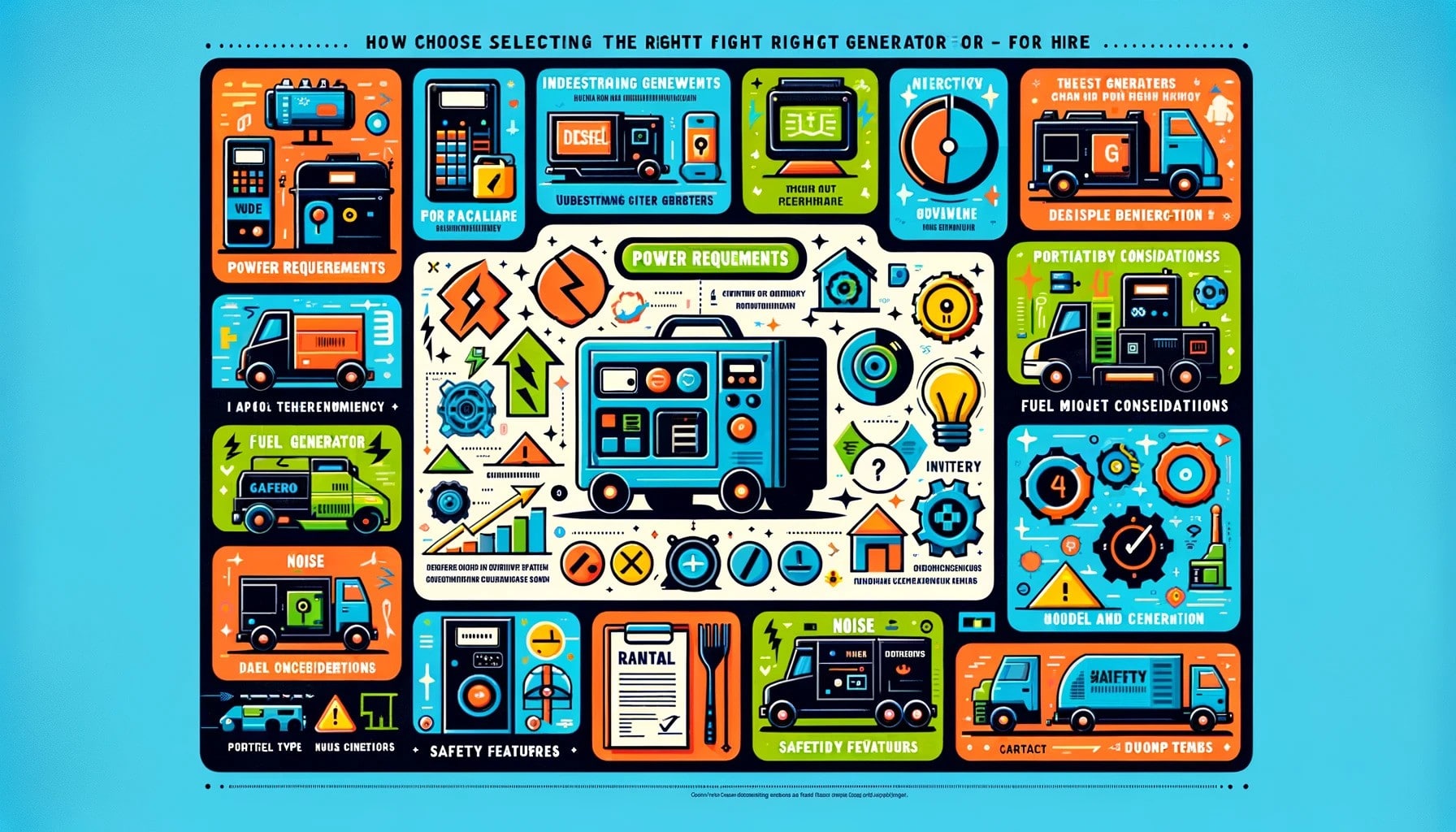When it comes to ensuring the smooth operation of a project, whether it’s a construction site, an outdoor event, or an emergency backup, the importance of a reliable power source cannot be overstated. Generator hire offers a flexible and efficient solution to meet this critical need. However, selecting the right generator requires careful consideration of several factors to ensure you get the most out of your hire.
Understanding Your Power Requirements
The first step in choosing a generator is understanding your power requirements. This involves calculating the total wattage of all the equipment you plan to operate simultaneously. It’s essential to consider both the starting wattage (the initial surge of power needed to start a motor-driven product) and the running wattage (the continuous power required to keep it running). Underestimating your power needs can lead to generator overload while overestimating can result in unnecessary expenses.
Types of Generators Available
Generators come in various types, each suited to different applications. The most common types include:
- Portable Generators: Ideal for small to medium projects, these generators are known for their mobility and are perfect for outdoor events or small construction sites.
- Inverter Generators: These are designed for situations that require clean and stable power, such as powering sensitive electronic equipment.
- Industrial Generators: For larger projects requiring high power output, industrial generators are the go-to option. They are robust and can handle heavy-duty usage.
Fuel Type and Efficiency
Generators are primarily powered by diesel, petrol, or gas. Diesel generators are known for their fuel efficiency and durability, making them suitable for longer, more demanding projects. Petrol generators are typically more affordable and lighter, ideal for shorter-term or less intensive use. Gas generators are less common but offer the benefits of cleaner emissions.
Noise Considerations
Noise is an important consideration, especially in residential areas or events where sound levels can be a concern. Inverter generators are typically quieter than their conventional counterparts, making them ideal for noise-sensitive environments.
Portability and Size
The physical size and portability of the generator should align with your project’s needs. Portable generators are easier to move around, which benefits events or projects requiring relocating the power source. Larger generators may require transportation and installation services, which should be factored into the hiring decision. At East Coast Generators, we offer a full spectrum of sizes, including medium-size generators for hire.
Safety Features and Compliance
Safety is paramount when dealing with generators. Look for units with built-in safety features such as automatic shut-off in case of low oil levels, overload protection, and sturdy, weatherproof designs. Ensure the generator complies with Australian safety and environmental regulations to avoid legal issues.
Rental Terms and Support
Understanding the rental terms, including the hire period, maintenance responsibilities, and support services, is crucial. Reliable generator hire companies offer customer support, maintenance services, and even training on how to use the equipment safely and efficiently.
Hire a Generator Today
Generator hire is a versatile solution for various power needs. By considering factors such as power requirements, generator type, fuel efficiency, noise levels, portability, safety features, and rental terms, you can ensure that you select the right generator for your project. With proper planning and understanding, your project can proceed smoothly, powered by a reliable and efficient power source.

